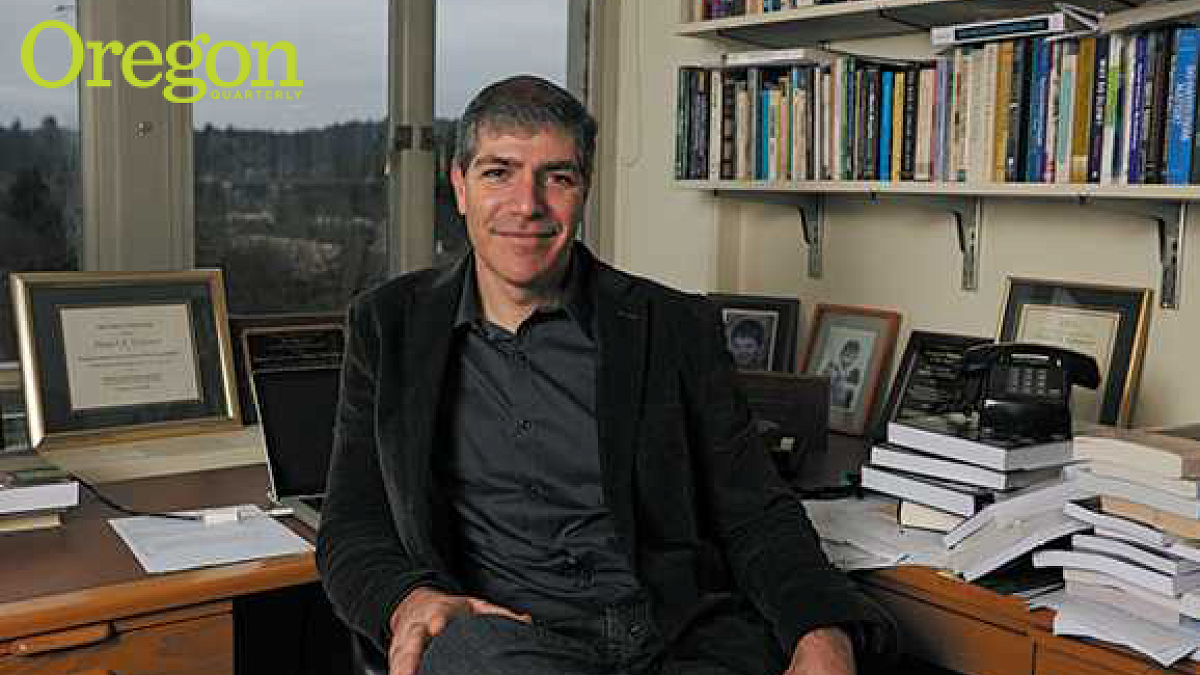Duck Wonk
Dan Tichenor calls himself a “geeky Indiana Jones” who digs through presidential archives, looking for unknown nuggets of history. And it’s true that he gets pretty excited when he talks about discoveries he’s made about the excesses of FDR during World War II or what he argues was Lincoln’s relative restraint in exercising presidential power as the Civil War raged. Tichenor is the UO’s Philip H. Knight Chair of Social Science and a senior fellow at the Wayne Morse Center for Law and Politics. In addition to his work as a scholar of the American presidency, he also researches immigration policy. The Politics of International Migration (Oxford University Press, 2012) is his most recent book. He’s now at work on two new books, including one about presidents’ use of executive power to limit civil liberties during wartime.
Abraham Lincoln suspending habeas corpus
While many scholars consider Lincoln an extremist in his use of presidential powers during wartime, Tichenor points out that he often reined in his military leaders when they sought further limits to civil liberties. “Lincoln was also very clear that he didn’t want emergency powers to extend beyond the end of the war.”
Franklin Delano Roosevelt and Japanese internment camps
Research shows that military, intelligence, and legal advisors all told FDR that Japanese Americans posed no real security threat during World War II. Even FBI director J. Edgar Hoover agreed, though he suggested that establishing the camps could “help morale” and appease West Coast politicians. Tichenor says it is difficult to find a moment when the president used restraint with regard to internment camps.
Woodrow Wilson and “enemies within”
Tichenor notes that Wilson used his “extraordinary rhetorical skills” to cast German-Americans and critics of the war as “enemies within” during World War I.
Wilson’s administration also granted quasi-official status to the American Protective League, a vigilante group that targeted German immigrants, leftists, antiwar groups, and labor unions. “This was not one of Wilson’s better moments,” says Tichenor.
During the “war on terror”
Bush and Obama have exercised vast unilateral powers that reflect a two-century expansion in presidential authority. Tichenor credits Bush for focusing his ire on extremists rather than calling all Muslims “enemies within.” Of Obama he notes, “In an era of permanent emergency, Obama has felt constrained to continue much of Bush’s counterterrorism program despite his own desires to end it.”
—By Jonathan Graham


